M. Amin Farajian
Findings of the WMT 2024 Shared Task on Chat Translation
Oct 15, 2024



Abstract:This paper presents the findings from the third edition of the Chat Translation Shared Task. As with previous editions, the task involved translating bilingual customer support conversations, specifically focusing on the impact of conversation context in translation quality and evaluation. We also include two new language pairs: English-Korean and English-Dutch, in addition to the set of language pairs from previous editions: English-German, English-French, and English-Brazilian Portuguese. We received 22 primary submissions and 32 contrastive submissions from eight teams, with each language pair having participation from at least three teams. We evaluated the systems comprehensively using both automatic metrics and human judgments via a direct assessment framework. The official rankings for each language pair were determined based on human evaluation scores, considering performance in both translation directions--agent and customer. Our analysis shows that while the systems excelled at translating individual turns, there is room for improvement in overall conversation-level translation quality.
Unbabel's Participation in the WMT19 Translation Quality Estimation Shared Task
Jul 24, 2019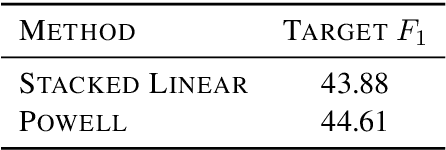
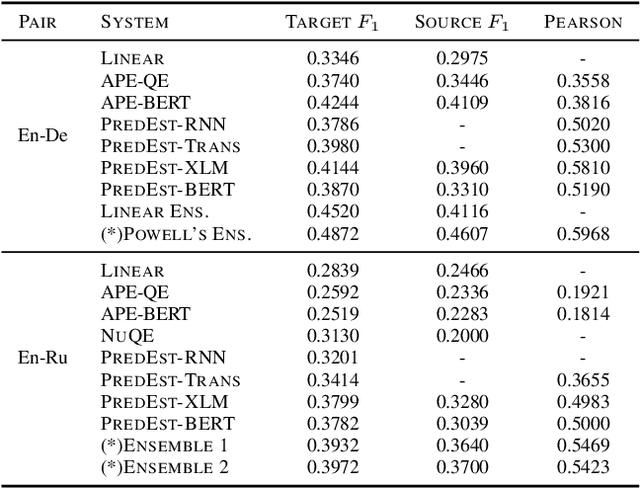


Abstract:We present the contribution of the Unbabel team to the WMT 2019 Shared Task on Quality Estimation. We participated on the word, sentence, and document-level tracks, encompassing 3 language pairs: nglish-German, English-Russian, and English-French. Our submissions build upon the recent OpenKiwi framework: we combine linear, neural, and predictor-estimator systems with new transfer learning approaches using BERT and XLM pre-trained models. We compare systems individually and propose new ensemble techniques for word and sentence-level predictions. We also propose a simple technique for converting word labels into document-level predictions. Overall, our submitted systems achieve the best results on all tracks and language pairs by a considerable margin.
Unbabel's Submission to the WMT2019 APE Shared Task: BERT-based Encoder-Decoder for Automatic Post-Editing
May 30, 2019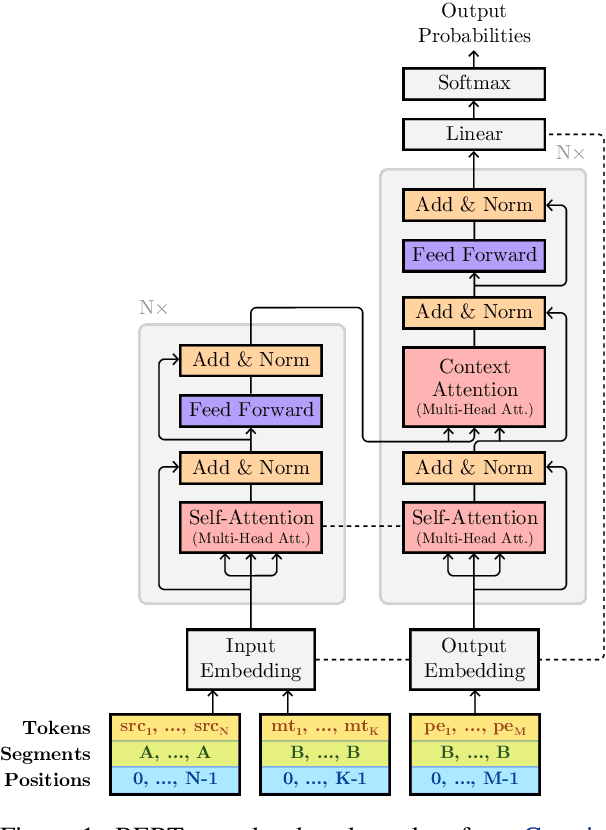
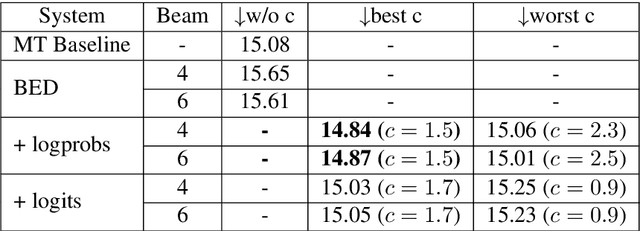
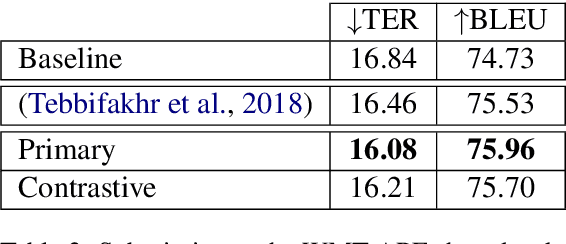
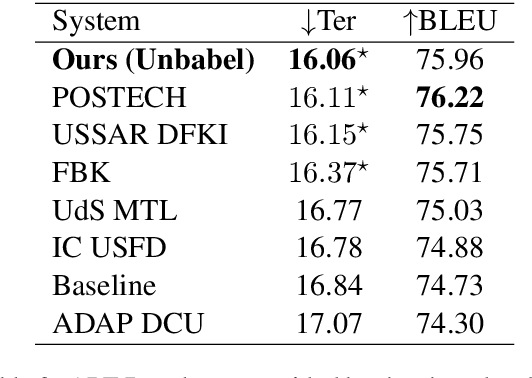
Abstract:This paper describes Unbabel's submission to the WMT2019 APE Shared Task for the English-German language pair. Following the recent rise of large, powerful, pre-trained models, we adapt the BERT pretrained model to perform Automatic Post-Editing in an encoder-decoder framework. Analogously to dual-encoder architectures we develop a BERT-based encoder-decoder (BED) model in which a single pretrained BERT encoder receives both the source src and machine translation tgt strings. Furthermore, we explore a conservativeness factor to constrain the APE system to perform fewer edits. As the official results show, when trained on a weighted combination of in-domain and artificial training data, our BED system with the conservativeness penalty improves significantly the translations of a strong Neural Machine Translation system by $-0.78$ and $+1.23$ in terms of TER and BLEU, respectively.
 Add to Chrome
Add to Chrome Add to Firefox
Add to Firefox Add to Edge
Add to Edge